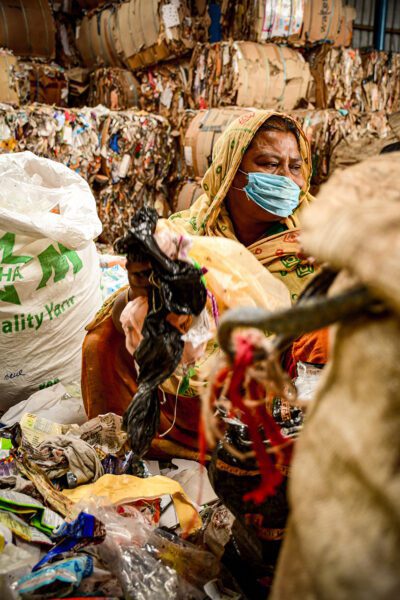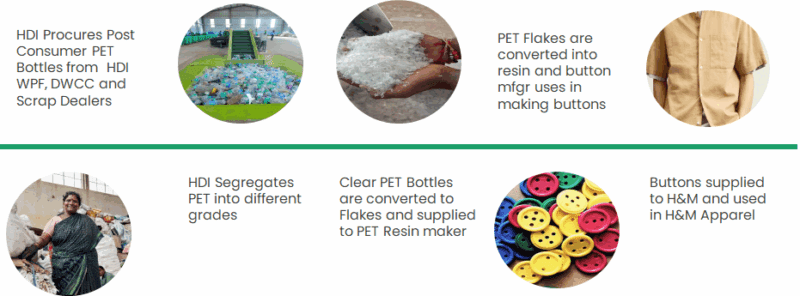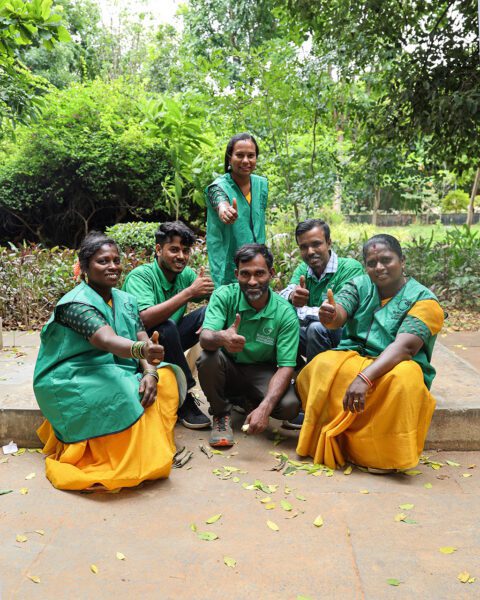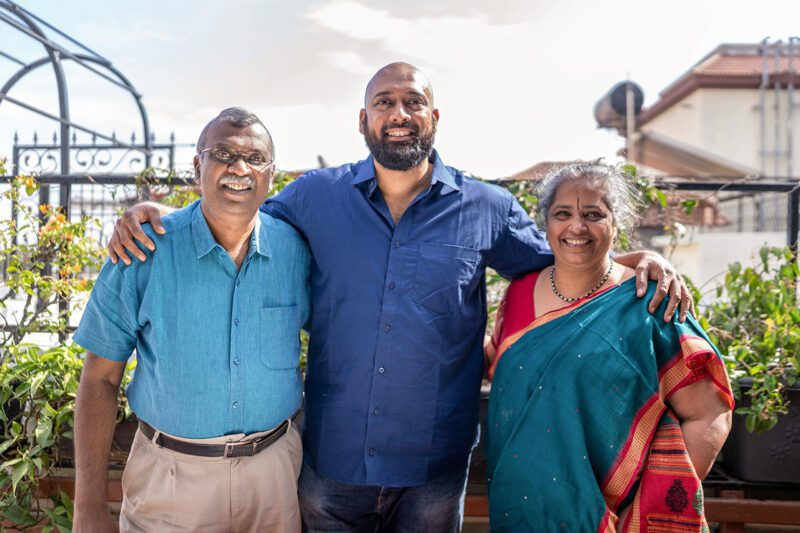Revenue-based Financing During COVID
Aunnie Patton Power and Sachi Shenoy argue for a different kind of impact finance strategy.
How Hasiru Dala Innovations is reimagining urban waste work

Bangalore, India
Widely known as India’s “Silicon City,” Bangalore conjures images of bustling technocrats, multinational companies, and fast-moving venture capital. But beneath this high-tech sheen lies a pressing crisis: unmanaged solid waste. Of the roughly 6,000 tonnes of garbage the city produces each day, a significant portion goes uncollected — littering streets, emitting foul odors, and contaminating groundwater. The city leans heavily on informal waste pickers to manage this crisis — yet these workers remain impoverished, invisible, and marginalized.
Nalini Shekar, a veteran of the development sector, spent the 1990s in California advocating for survivors of violence—work that earned her recognition from Governor Arnold Schwarzenegger. Upon returning to India, she began organizing waste workers in Pune and Bangalore. After retiring from the IT sector and a brief stint in academia, Shekar Prabhakar joined forces with her. In 2012, they co-founded Hasiru Dala, a nonprofit focused on helping apartment complexes and commercial buildings manage waste responsibly. Within a year, their client base grew from three to forty.

Green-Collar Worker sorting dry waste at HDI’s Material Recovery Facility
The turning point came in 2015, at a housewarming ceremony for one of their waste pickers. Just four years earlier, she had been a “bag-carrying, street-stomping waste picker,” living in a flood-prone shack. Thanks to the economic opportunity provided by Hasiru Dala, she had moved her family into a permanent home. Inspired by this transformation, the founders established Hasiru Dala Innovations (HDI) as a for-profit social enterprise aimed at building more scalable, sustainable models of impact.
HDI’s core objective is to turn the urban waste crisis into a platform for dignified, predictable livelihoods. Their model offers waste workers steady employment, a safe work environment (including insurance), above-minimum wages, and pathways to entrepreneurship. Early on, they secured seed funding from Social Alpha and Ennovent and were recognized with awards for their pioneering approach.
HDI’s brand ethos, Inclusive Circularity®, merges two bold ideas: the need to reduce resource consumption (circularity), and the imperative to improve waste workers’ lives (inclusion). One striking example is Lotfar Ali, HDI’s first waste picker entrepreneur, who now runs a dry waste management enterprise, owns four trucks, and employs 30 people.
HDI is “dedicated to creating a world with no waste and no waste pickers, through innovative, inclusive, and circular economy business models.” Their theory of change envisions a progression for waste workers — from informal to professional, then to formal, and finally to independent green professionals. While HDI has raised approximately $700,000 in institutional equity from Rainmatter Fintech and Next Bharat Ventures, sustaining momentum in a low-margin, high-churn industry will demand patient capital and continued business innovation.

Bottles To Buttons Flow Diagram
To close the loop on plastics, HDI has built partnerships with brands like Unilever, H&M, and Cofresco. For instance, HDI supplies post-consumer PET plastic — sourced through its waste picker network — to manufacturers producing buttons for H&M apparel. As of 2023, over 150 million buttons made from HDI-supplied recycled plastic have been used by the brand.

Recycled Buttons for H&M — fair trade guaranteed PET waste supplied by Hasiru Dala Innovations
This supply chain was hard-won. HDI had to both improve material quality and lower costs to meet specifications. Success also depended on values alignment — with an H&M counterpart who shared HDI’s commitment — and on leveraging existing relationships with the H&M Foundation. Still, the risk was considerable: the contract is with the button supplier, not directly with H&M. And while HDI has helped increase recycled content in buttons to 60%, reaching 100% remains a costly challenge. Moreover, buttons represent only a fraction of H&M’s virgin material usage.

Waste Pickers at the Hasiru Habba 2024
To date, HDI has served over 35,000 households and diverted more than 100,000 tons of waste from landfills. According to a recent Upaya impact assessment, HDI has empowered 33 waste picker entrepreneurs and supported 2,186 jobs in just one quarter (Jan–Mar 2024). Workers reported an average 165% income increase after joining HDI. Still, more nuanced, qualitative metrics will be required to track long-term progress and systemic change.
HDI is the first waste management enterprise to be Fair Trade Guaranteed by the World Fair Trade Organization. This recognition has opened up new supply chain partnerships. Unilever now uses HDI-sourced recycled plastic in its premium shampoo packaging. Cofresco repurposes recycled milk packets into garbage liners. And for H&M, HDI has implemented blockchain technology that tracks recycled buttons back to the specific waste pickers, recording their names, wages, and working conditions.
Despite recent accolades — including the Sankalp Impact Award and recognition by FICCI for circular economy leadership — HDI’s path forward hinges on scaling its model to serve fast-moving consumer goods (FMCG) sectors and mass markets. Achieving this will require competing on unit economics with the informal sector — no easy task.

Hasiru Dala Founders Shekar, Marwan, and Nalini
India’s waste crisis is far from solved. According to a 2021 report by the Centre for Science and Environment, more than 80% of the 62 million tonnes of solid waste generated annually in India is disposed of unscientifically. This not only undermines environmental goals but also degrades the quality of life for waste workers.
Systemic change at scale requires more than one enterprise. It demands a network of mission-driven entrepreneurs collaborating across the waste value chain — producers, processors, consumers, corporates, and government actors alike. HDI now faces two strategic options: grow deeper by scaling its own operations, or grow broader by enabling other enterprises to replicate and extend its model.
Either path — depth or breadth — signals a maturing phase for impact enterprises. HDI’s journey is emblematic of the sector’s evolution: from fledgling initiatives to systemic changemakers.
Related Content
Comments
Deep Dives
RECENT
Editor's Picks
Webinars
News & Events
Subscribe to our newsletter to receive updates about new Magazine content and upcoming webinars, deep dives, and events.
Become a Premium Member to access the full library of webinars and deep dives, exclusive membership portal, member directory, message board, and curated live chats.
At Impact Entrepreneur, we champion fearless, independent journalism and education, spotlighting the inspiring changemakers building the Impact Economy. Diversity, equity, sustainability, and democracy face unprecedented threats from misinformation, powerful interests, and systemic inequities.
We believe a sustainable and equitable future is possible—but we can't achieve it without your help. Our independent voice depends entirely on support from changemakers like you.
Please step up today. Your donation—no matter the size—ensures we continue delivering impactful journalism and education that push boundaries and hold power accountable.
Join us in protecting what truly matters. It only takes a minute to make a real difference.
0 Comments